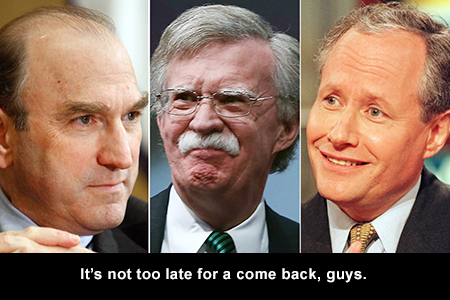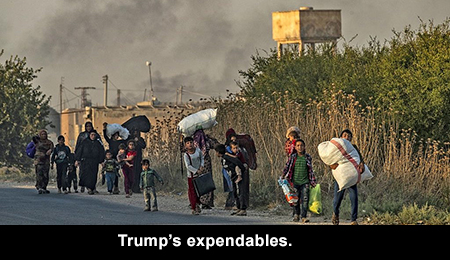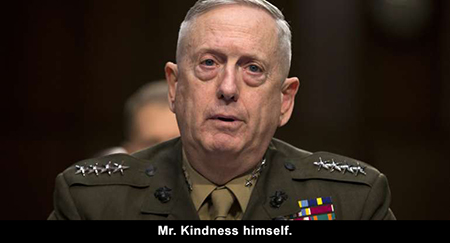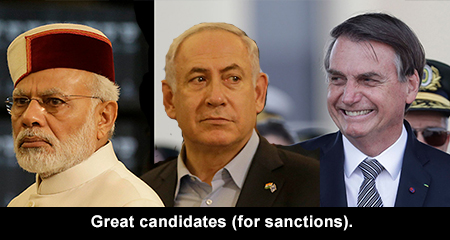I’ve heard a few stories this week about mission creep in the U.S. led response to Russia’s Ukraine invasion. Frankly, it would surprise me if there wasn’t any. This is something empires do, and the United States has done it multiple times in not at all subtle ways. Libya is probably the most glaring recent example of this. First we’re going to save the people of Benghazi; then, well, we’re going to act as the Libyan rebels’ air force. That’s when you get people back home saying, did we sign up for this?
Well, now we have members of congress going around saying that this is a proxy war against Russia, which speaks to the intention behind the policy. Granted, Seth Moulton was the source, but still – he probably hears a lot from the national security establishment on this. Trouble is, there’s a proxy only on one side – ours. This is not like Syria. Russia has a direct interest in this war, not a supporting role. Given what we’re hearing about intelligence sharing, it’s kind of a miracle that we’re all still here.
Unannounced, unmolested visitors
But intelligence sharing is not the only thing going on behind the scenes. There must be a substantial amount of de-confliction taking place, or even relatively high level conversations. The reason I think this is that Russia has the capability to strike anywhere in Ukraine by air, via either planes or medium range ground-to-ground missiles. And yet, when American dignitaries – congress members, cabinet officials, the first lady – show up in Kviv, there are no Russian strikes. Coincidence? I think not.
This cannot be chalked up to not knowing about the trips. Russia hits these cities at random, at will. But when important people from the U.S. are in town, the missiles stop. This is not a coincidence. It’s evidence of some rudimentary rationality on the part of Russian leadership – they don’t want World War III. Frankly, there are a lot of things they could be doing militarily that they haven’t opted for. That’s not cause for praise, of course – if someone with a gun stabs you to death, it doesn’t mean you should praise them for not shooting you. But in this case, it means that things can, indeed, get a lot worse.
Going over the top
All that said, there remains a better than strong chance that this Ukraine conflict will result in a broader war, and perhaps nuclear escalation. The pieces are all in place to make that happen. It seems clear, based on recent reporting, that the Biden administration has been sharing targeting information with the Ukrainians that has contributed to bringing about the deaths of numerous Russian generals. If it’s being reported, it was certainly known already to the Russian leadership. Now the whole world knows, and they have egg on their face.
In recent days, the Russians have been zeroing in on Ukraine’s supply lines from the West. They hit Odessa as part of this campaign, reportedly. We know there are American and European operatives working in Ukraine. How long before some of these people are hit, captured, killed? If the Ukrainians continue to succeed on the battlefield with our weapons, how long before Russia strikes at the source of these weapons, if only obliquely? It might turn out to be a light tap on the arm, but that might be all that’s needed.
What doesn’t help is American politicians spouting off about turning this into another Afghanistan, as Seth Moulton was kind of saying on Fox the other day. I expect this idiocy from Republicans … but Democrats should know better, somewhat.
Damn the ICBMS – full speed ahead!
I got into a Twitter skirmish with a Congressional candidate a couple of weeks ago over the topic of Ukraine. He is an independent, and he was advocating removing Putin from power. I asked him how he proposed to do this, and after some hedging he said through military action. When I pointed out that this would likely lead to World War III, he basically accused me of not caring about the suffering of Ukrainians, and called me a “coward” because I was not willing risk nuclear war to advance his regime change policy.
The thing that’s truly frightening about this is that other people – progressives, even – seem to think this makes sense. This is the problem with having a massive military that can project power all around the globe at will. We use it too much – like Russia, only worse – and get used to the idea of it being a solution to all problems, when it, in fact, solves none.
If we try to pull an Iraq or a Libya on Russia, it’s game over. That’s the reality, like it or not.
luv u,
jp







